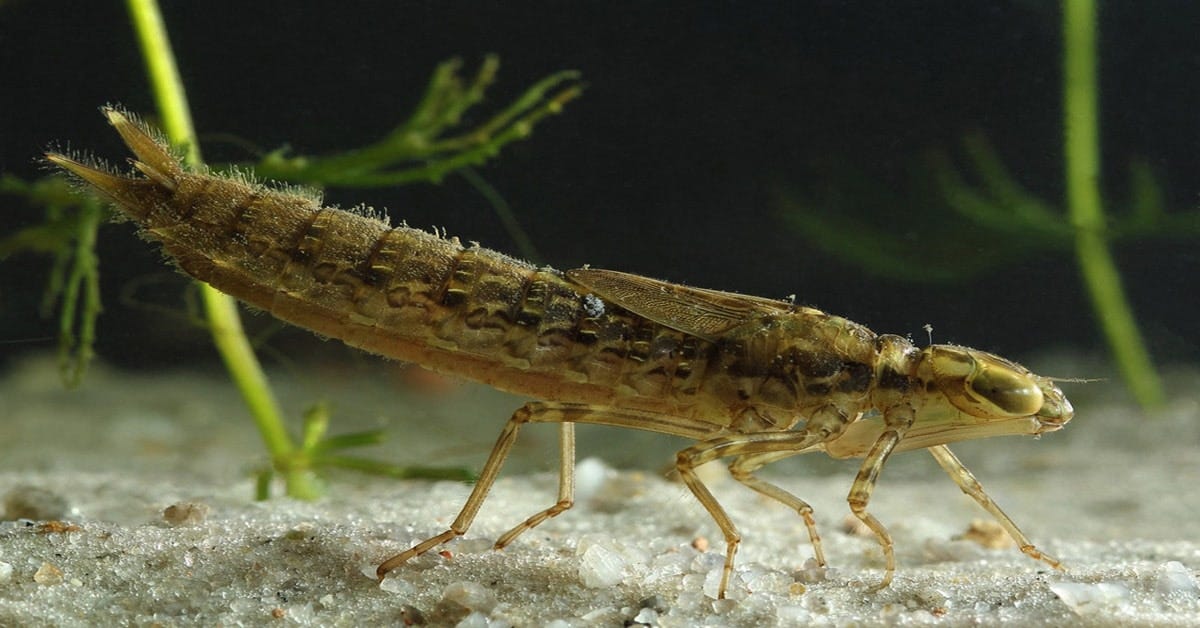ISSUE #02: This Is a Dragonfly
Bug larvae catch fish for dinner using this One Weird Trick.
I was paralyzed nearly all week trying to decide which bug to write about for Bugstack's first subscribers-only post (hello and thank you). There are just so many bugs out there. How is someone like me, who loves them all, supposed to choose?? And then on Thursday morning I watched a dragonfly hunting in midair outside my window, and I decided.
There's plenty to say about dragonflies. They've certainly been around for long enough. When we learned about the dinosaurs, we also learned about their insectoid contemporaries: crocodile-sized millipedes, ocean-dwelling sea scorpions, and giant dragonfly ancestors called "griffinflies" that grew as big as a TV (topping this list from Terminix). While the other oversized arthropods went extinct, dragonflies remained, perfecting their body plan over hundreds of millions of years. They're terrifyingly efficient hunters, with huge compound eyes that actively choose individual prey out of a swarm—brain activity that more closely resembles humans' than other insects. They have four wings that can steer them in any direction at absurd speeds, turning a hunt into an ambush rather than a chase. Entomologists have put their catch rate at 95%, the deadliest predator yet measured. For comparison, wolves make a kill about 20% of the time, cheetahs about 50%. Their colorful bodies, lightning-fast movements, and pleasing shape have inspired paleolithic rock painters, Louis Tiffany's glasswork, and Alfred, Lord Tennyson's poetry.
But what we see when we see a dragonfly zooming about in the hot summer air is only a fraction of their life. When a dragonfly is born, it doesn't look like a dragonfly at all. In fact, dragonflies spend most of their lives—up to five years—living underwater.
Keep reading with a 7-day free trial
Subscribe to Bugstack to keep reading this post and get 7 days of free access to the full post archives.


